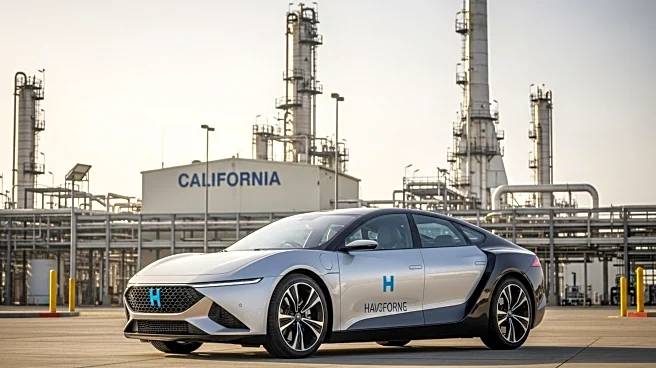What is the story about?
What's Happening?
California is experiencing a significant shift in diesel consumption, with renewable diesel now supplying over 70% of the state's diesel needs. This transition is impacting the future of refineries, as facilities like Phillips 66 in Los Angeles and Valero in Benicia face closures or restructuring due to declining demand for fossil diesel. The Low Carbon Fuel Standard is driving this change, incentivizing the use of renewable fuels and reshaping the state's refining landscape.
Why It's Important?
The rise of renewable diesel in California represents a critical step towards reducing greenhouse gas emissions and transitioning to sustainable energy sources. As refineries adapt to changing market demands, the state's energy policy framework plays a pivotal role in shaping the future of fuel production. This development is significant for the energy sector, as it highlights the challenges and opportunities associated with the shift from fossil fuels to renewables.
What's Next?
The transition to renewable diesel may lead to further closures or conversions of refineries in California, impacting local economies and employment. As the state continues to prioritize low-carbon fuels, policymakers may explore additional measures to support the energy transition and address supply chain challenges. The success of renewable diesel could influence other states to adopt similar policies and accelerate their own transitions to sustainable energy.














